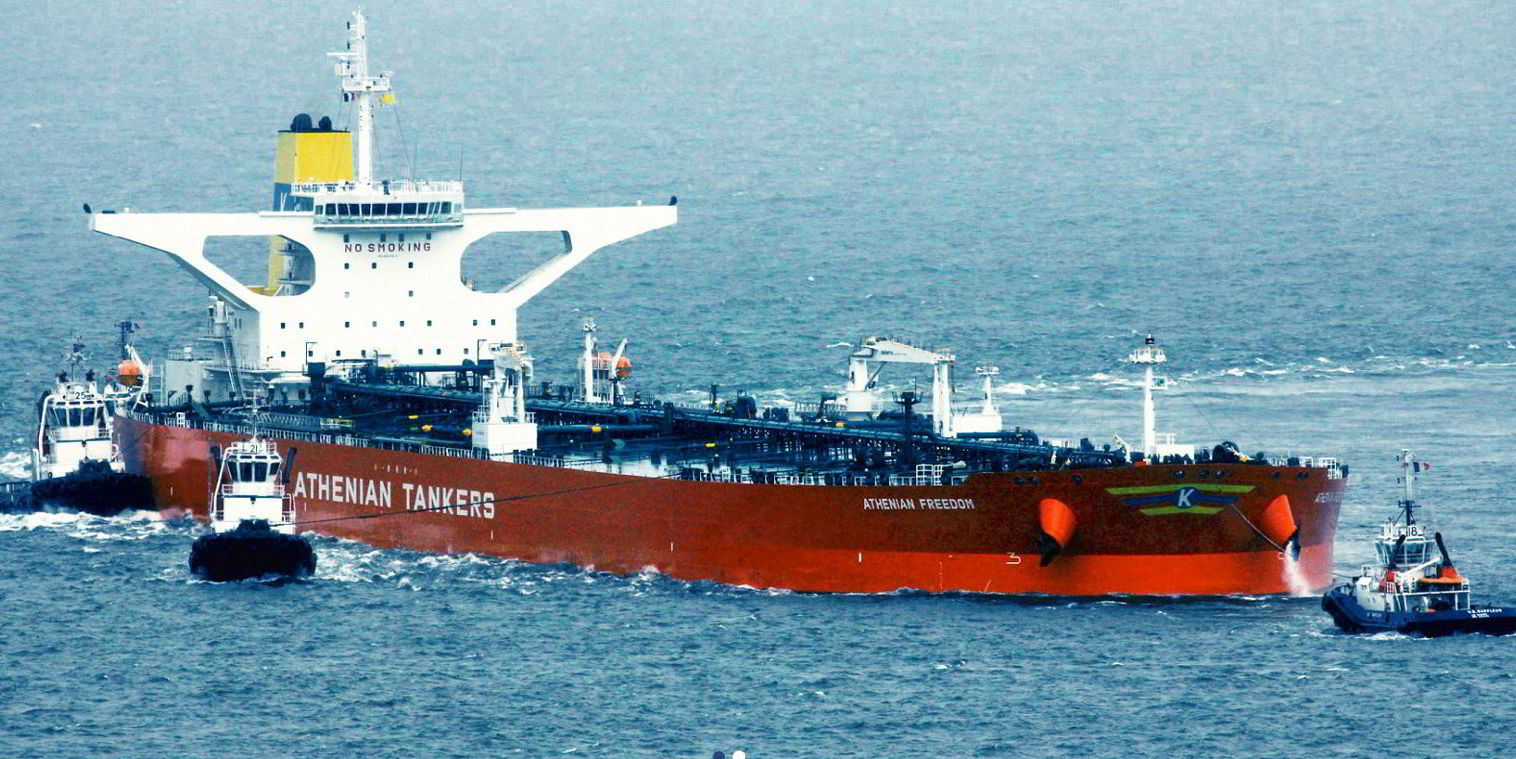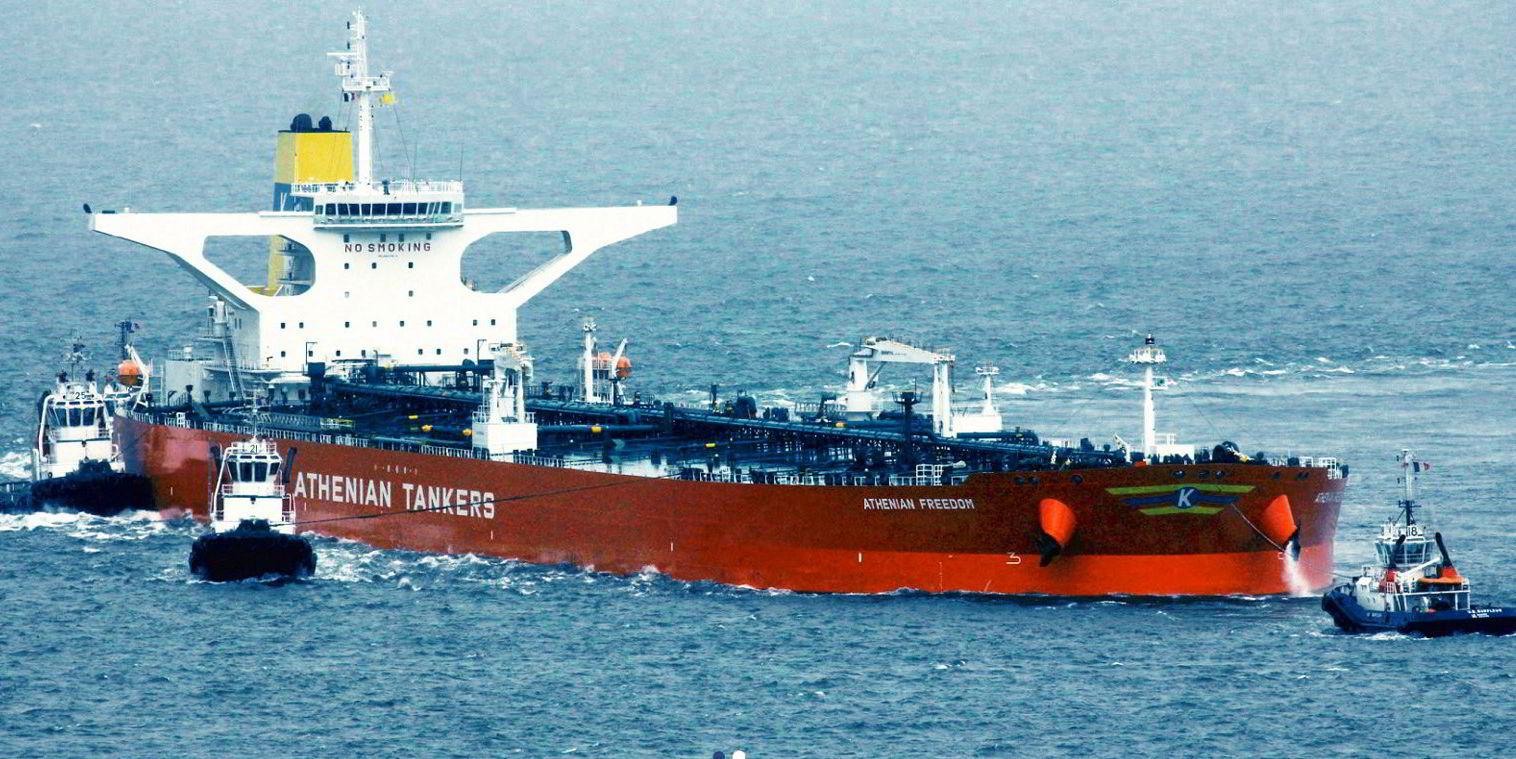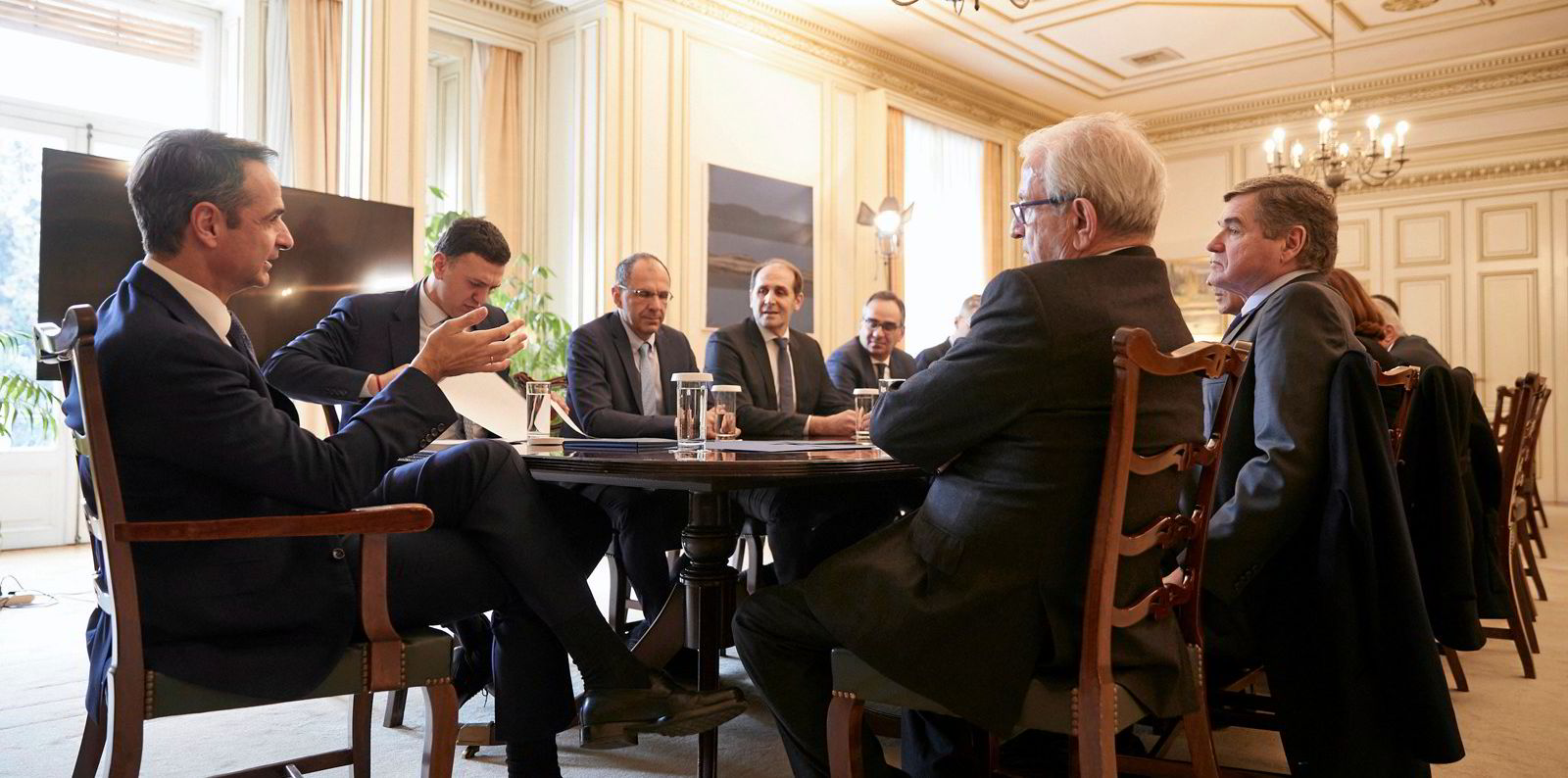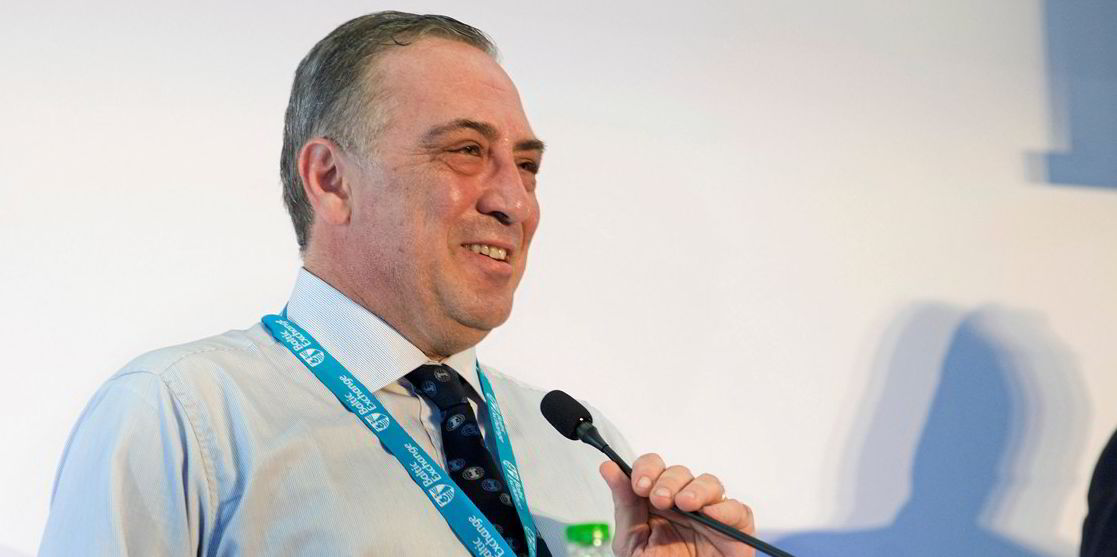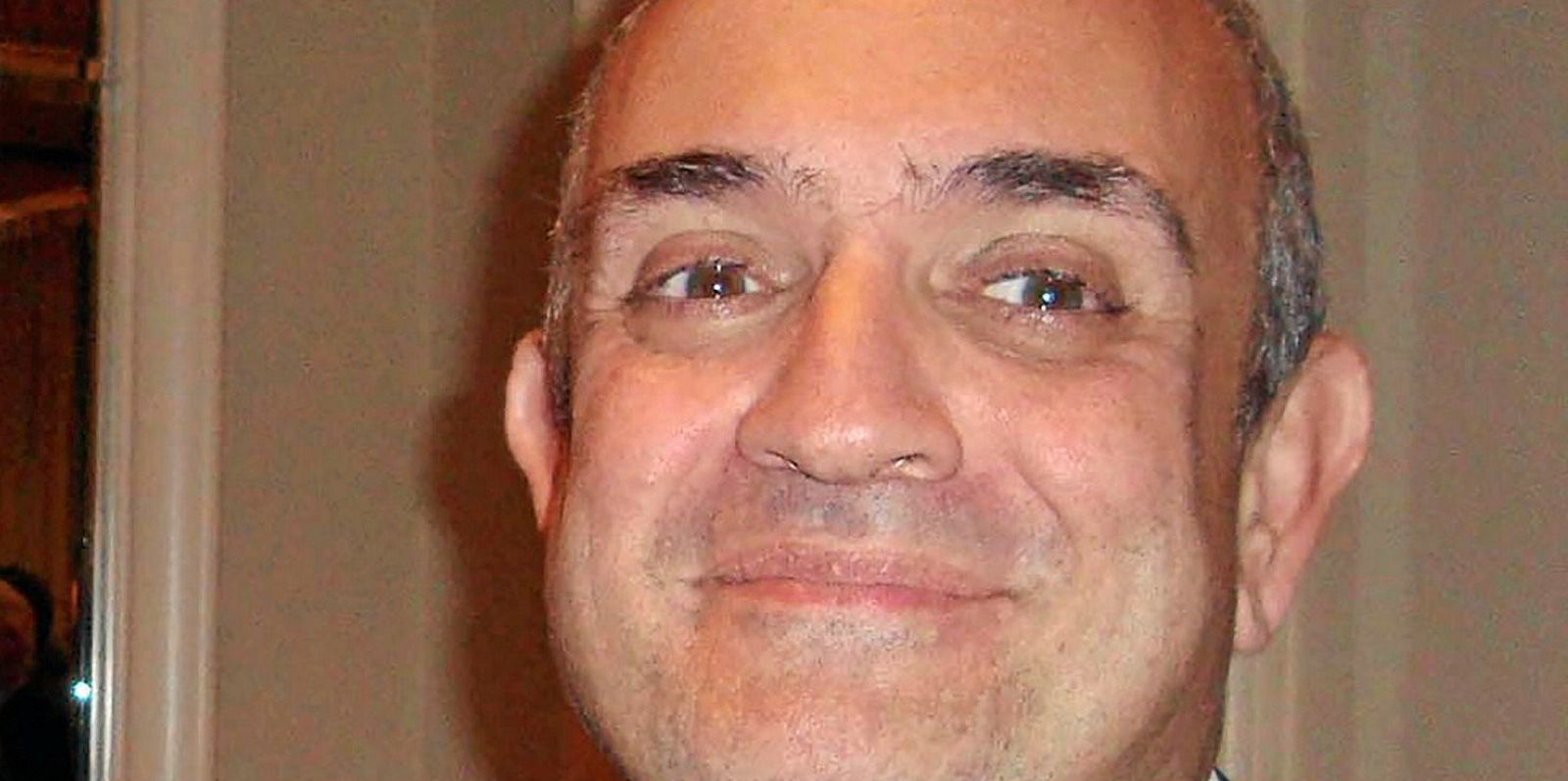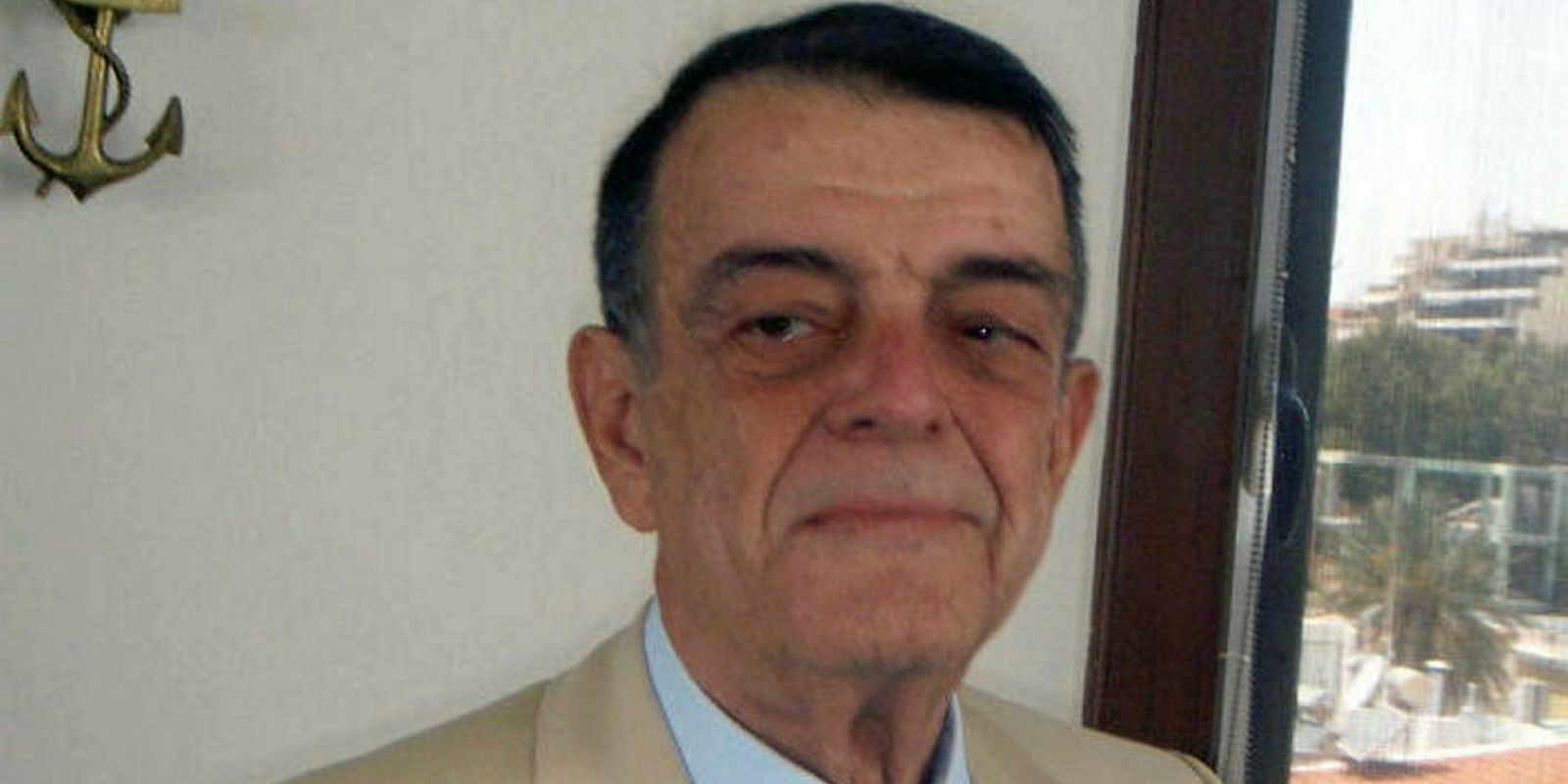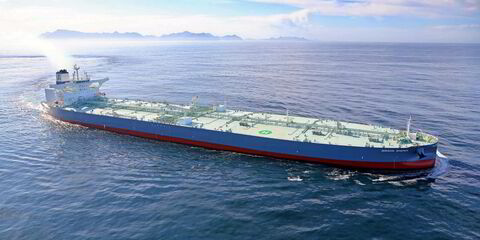Greece’s Kyriakou family may be left with just three VLCCs, if reports are accurate that it has disposed of yet another tanker.
Several brokers in London and the US reported that the clan’s Athenian Sea Carriers has agreed to sell the 317,400-dwt Athenian Success (built 2010) for about $42.5m.
The Hyundai Heavy Industries-built vessel is known to have circulated for sale in late 2021, as TradeWinds reported.
Brokers identified Sinokor Merchant Marine as the Athenian Success’ buyer.
Managers at Athenian Sea Carriers and Sinokor did not respond to a request for comment.
Market sources believe Sinokor has bought the ship because it is attractively priced, considering how expensive newbuilding and more modern VLCC tonnage currently is. Despite sagging freight rates, several players are still betting that demand for tankers will pick up soon.
Going into reverse gear
Until not too long ago, Athenian Sea Carriers was thought to be poised for expansion.
In September 2020, the Kyriakou family hired former Frontline newbuilding dealmaker Jens Martin Jensen with a brief to grow Athenian’s fleet, which consisted of six non-scrubber-fitted VLCCs at the time.
A few months later, the company indeed proceeded to order VLCC newbuildings at HHI.
At some point during 2021, however, the family seems to have decided to change tack and start shrinking its shipping exposure.
Athenian Sea Carriers embarked on a sale campaign that didn’t just include the recently ordered newbuildings but spilt over into its core fleet of VLCCs on the water.
In June, the company sold its oldest ship, the 317,400-dwt Athenian Victory (built 2009), to Greek peer Eurotankers.
In December, another Greek peer, Altomare, was linked to a $42m deal for the 317,400-dwt Athenian Harmony (built 2010). That ship, however, has not formally changed ownership yet.
In January this year, TradeWinds reported that Jensen had left Athenian to return to Fredriksen.
Athenian managers did not respond to a request to comment on its strategy and whether it intends to sell any other ships, or possibly even get out of shipping, as some market watchers suspect.
Metrostar in selling mode
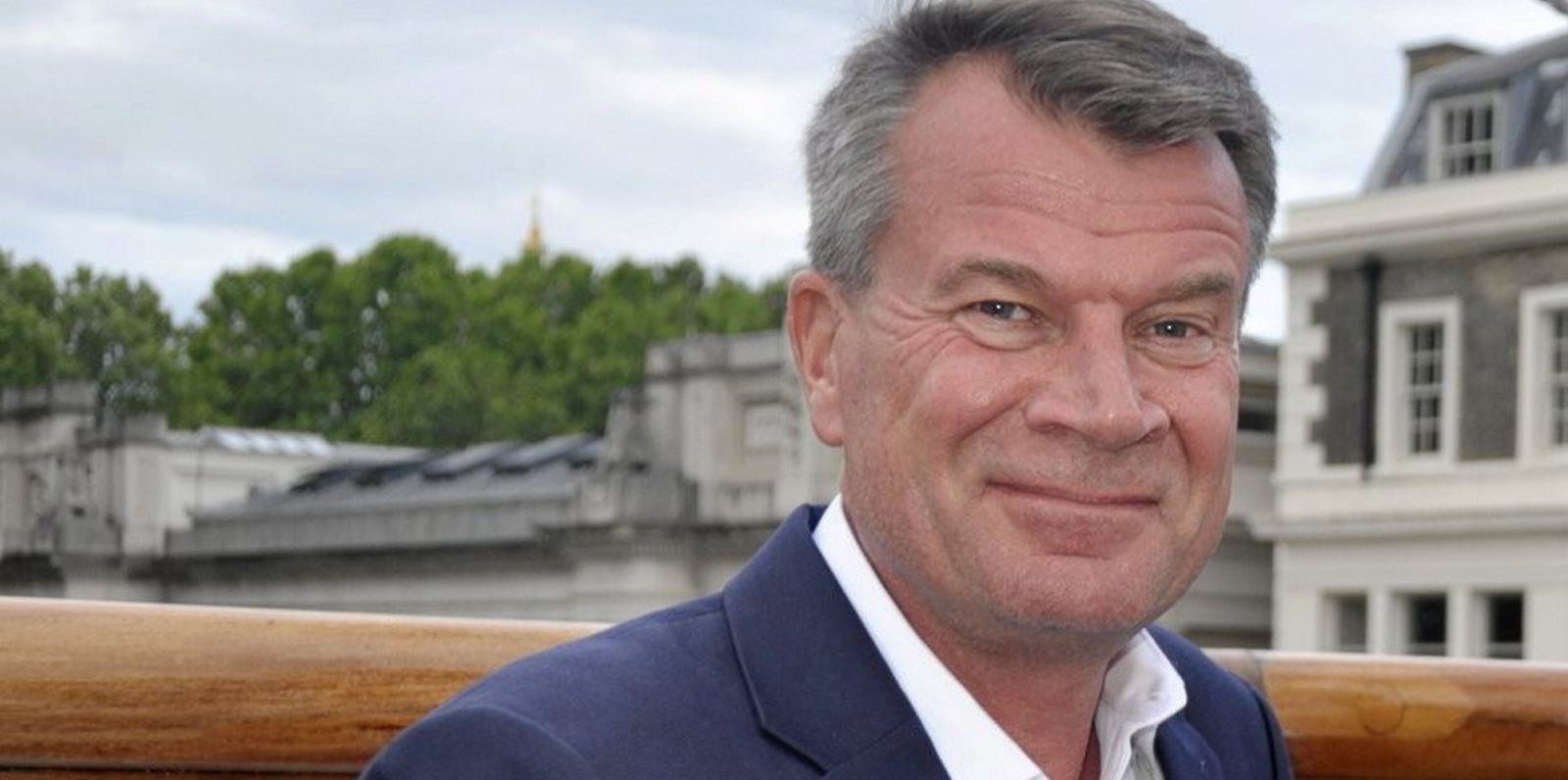
“With all these sales, especially of the newbuildings, it doesn’t exactly look like they’re having much confidence in the business,” commented one observer.
The Kyriakou family’s shipping history goes back to the 19th century. Its maritime fortune, however, was greatly expanded by the late Minos Kyriakou, who died five years ago. The group is currently controlled by his children Xenophon, Athena and Thodoris.
Athenian Sea Carriers is led by Christos Stathis, who has been chief executive since he joined the company in 2007.
The family’s interests include Antenna, a big media group in Greece.
It has also built a wide portfolio of other investments, ranging from fish farming to Facebook and Twitter, as well as digital media, entertainment and sports companies such as Zumba and Vice.
If the sales of the Athenian Harmony and Athenian Success are confirmed, Athenian Sea Carriers would remain with a trio of VLCCs built between 2011 and 2013.
Another Greek company that seems to be beating a retreat from the tanker sector, whether tactical or not, is Metrostar Management.
Several Athens brokers reported that the Theodore Angelopoulos-led company is selling its third tanker in two months. Unidentified buyers are said to be spending $47.6m on the 115,600-dwt aframax Crudesun (built 2018).
Metrostar managers did not respond to a request for comment.
Angelopoulos, who likes going in and out of shipping sectors in fleet-wide deals, offloaded the 115,600-dwt LR2 Prosky (renamed Siena, built 2019) to Neda Maritime in December.
Later that month, brokers reported that Metrostar had offloaded sistership Prostar (built 2019) as well, to other Greek buyers at about the same price. That vessel has not formally changed hands yet.
A sale of all these ships would leave Metrostar with the 2018-built Crudemed — an aframax sistership to the Crudesun — and the 156,500-dwt suezmax pair Crude Levante and Crude Zephyrus (both built 2021).
Metrostar was founded in 1996. According to its website, it has concluded 208 vessel transactions since then, as well as 76 newbuilding contracts at shipyards in South Korea and Japan.
